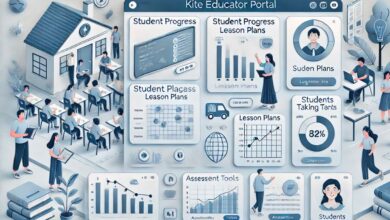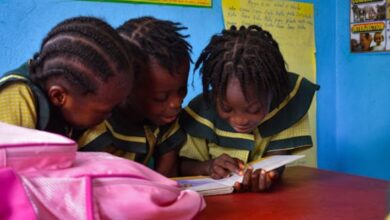A Comprehensive Guide to Early Childhood Education Books

Early childhood education books play an essential role in shaping the learning experiences of young children. These books are designed to support the development of cognitive, emotional, and social skills during the formative years of childhood. From textbooks for educators to storybooks for children, the diverse range of early childhood education books provides invaluable resources to teachers, parents, and caregivers alike. This article explores the significance of early childhood education books, their different categories, and how they impact the early development of children.
Understanding Early Childhood Education Books
Early childhood education books serve as fundamental resources for anyone involved in the education and upbringing of young children. These books cover various topics, including child psychology, developmental milestones, teaching strategies, and play-based learning approaches. Books in this field are essential tools for educators who aim to create developmentally appropriate curricula and for parents seeking to understand and support their children’s growth. From preschool to kindergarten and early elementary education, these books ensure that learning is engaging, enriching, and tailored to the developmental needs of each child.
Categories of Early Childhood Education Books
Early childhood education books can be divided into several categories, each addressing specific aspects of child development. Below are some of the most common categories:
1. Books on Cognitive Development
Books focused on cognitive development help teachers and parents understand how children’s brains work and grow. For example, Developmentally Appropriate Practice in Early Childhood Programs is a popular book used by educators to create age-appropriate curricula based on evidence-based research. These books provide insights into how children learn, think, and process information, enabling educators to tailor their teaching methods effectively.
2. Books on Play-Based Learning
Play-based learning has become increasingly recognized as a vital approach to early childhood education. Books like Planning for Play, Observation, and Learning in Preschool and Kindergarten emphasize the importance of structured play in children’s academic and social growth. These books guide educators in planning intentional play activities that nurture creativity, problem-solving skills, and social interactions. Play-based learning books provide a framework for integrating play with academic goals, helping children thrive in the classroom while enjoying the learning process.
3. Books on Emotional and Social Development
Young children are at a critical stage of emotional and social development, and books that address these areas are crucial for early childhood educators. Titles such as How to Get Kids to Say Yes! explore techniques for understanding children’s communication styles and developing stronger connections between teachers, parents, and students. These books provide strategies for managing emotions, building self-confidence, and fostering positive social behaviors.
4. Books on Early Literacy
Literacy is one of the most important areas of focus in early childhood education. Books like Literacy Beginnings: A Pre-Kindergarten Handbook provide teachers and parents with practical strategies for introducing young children to reading and writing. These books offer activities and tips on how to create a print-rich environment that encourages children to explore language, letters, and words in a fun and engaging way. Early literacy books often include guidance on phonics, storytelling, and fostering a love for books in children.
The Role of Early Childhood Education Books in Classrooms
Early childhood education books are indispensable tools for educators. They provide a foundation for teachers to develop curricula that cater to the diverse needs of their students. By offering a deep understanding of child development theories and practical applications, these books guide teachers in creating lessons that are both educational and enjoyable.
In classrooms, early childhood education books are used for various purposes. Some books serve as textbooks for teachers, offering step-by-step instructions on lesson planning, classroom management, and assessment. Other books are meant for children, such as picture books and storybooks that introduce young learners to the joys of reading. These books help build foundational literacy and numeracy skills while fostering a love for learning.
How Early Childhood Education Books Impact Children’s Development
Books play a significant role in early childhood education by influencing children’s cognitive, emotional, and social development. The content of these books, whether they are instructional guides for teachers or storybooks for children, shapes how children perceive the world and interact with others.
1. Cognitive Development
Books that focus on cognitive development help children develop critical thinking and problem-solving skills. Through engaging stories and activities, children learn to recognize patterns, make predictions, and develop reasoning abilities. Cognitive development books are particularly important in early childhood as they lay the foundation for future academic success.
2. Emotional and Social Growth
Books that address emotional and social development help children understand their emotions and learn how to express them appropriately. These books often include stories about friendship, kindness, and empathy, teaching children how to navigate social relationships and resolve conflicts. By providing children with relatable characters and scenarios, these books offer valuable lessons in emotional regulation and interpersonal skills.
3. Language and Literacy Skills
Language and literacy books introduce children to the world of words, helping them develop the skills necessary for reading and writing. By engaging with early childhood education books, children enhance their vocabulary, improve their comprehension, and develop a love for reading. These books often include interactive activities, such as rhyming games and storytelling, that make language learning an enjoyable experience.
Choosing the Right Early Childhood Education Books
Selecting the right early childhood education books depends on the specific needs of the child and the learning environment. For educators, choosing books that align with curriculum standards and developmental milestones is essential. Books like Creative Investigations in Early Math offer practical ideas for teaching math concepts through hands-on exploration, while Starting with Science: Strategies for Introducing Young Children to Inquiry provides a framework for teaching science in a fun and engaging way.
For parents, selecting books that encourage reading at home and support learning outside the classroom is crucial. Storybooks, picture books, and interactive books that focus on early literacy, math, and emotional development can create meaningful learning opportunities at home. It’s also important to choose books that reflect diversity, helping children see themselves and others in the stories they read.
Conclusion: The Importance of Early Childhood Education Books
Early childhood education books are indispensable resources that support the development of young learners. Whether they are used by educators in the classroom or by parents at home, these books provide the tools necessary for fostering cognitive, emotional, and social growth in children. From guiding teachers in planning effective lessons to helping children develop a love for learning, early childhood education books are essential for shaping the future of education.
As the field of early childhood education continues to evolve, the demand for high-quality, research-based books will only grow. Educators and parents alike must stay informed about the latest resources available to ensure that they are providing the best possible learning experiences for young children. By investing in early childhood education books, we are investing in the future of our children.



